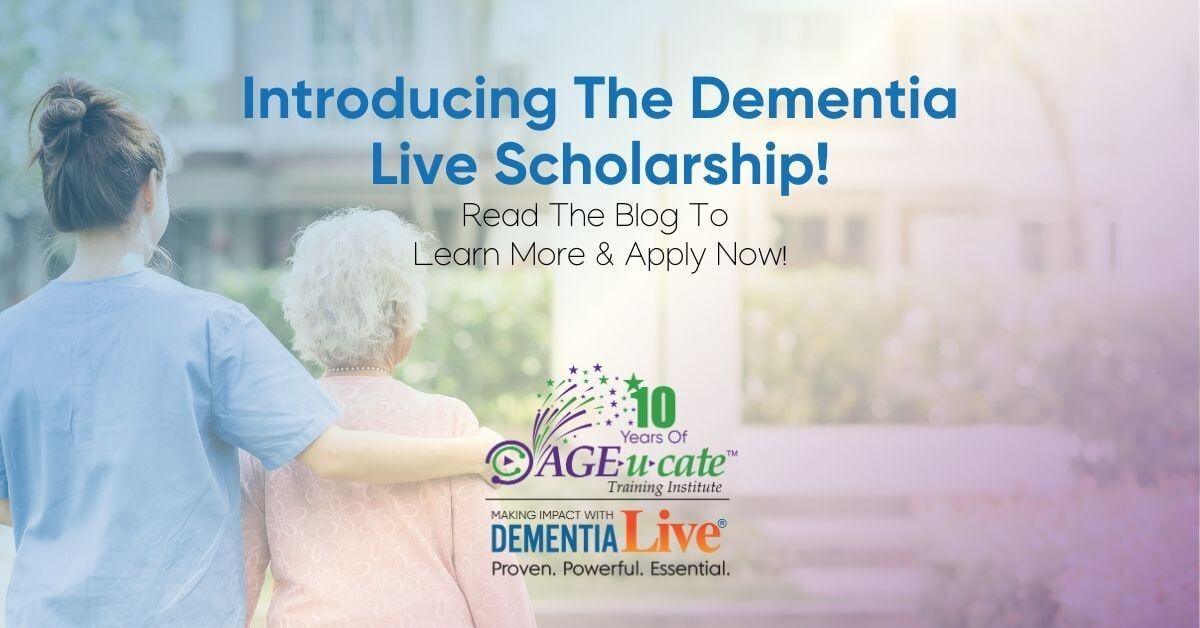From A Great Dementia Coach to an Extraordinary Dementia Champion


In our last blog, we talked about the 10 characteristics of a great coach and how these traits translate into being a great dementia training coach. Now let's talk about moving from a great coach to an extraordinary champion.
What defines a Champion?
One definition describes a champion as a person who fights or argues for a cause on behalf of someone else. A champion is often an advocate, proponent, promoter, or supporter.
I believe in the world of dementia training and education that champions are often those individuals who have a deep passion for helping others, many times because they have a personal experience that led them to this field. Perhaps you were drawn to work with older adults living with dementia and saw the complex issues that both care partners face.
We all have our own story of how we landed here, don't we? We want to learn and grow in our role as dementia trainers or coaches. As in life, it's one step at a time!
Here are 3 steps to becoming an extraordinary dementia training champion:
1. Connect and Collaborate.
Dementia is a monumental public health priority at the global level. Dementia has significant social and economic implications regarding direct medical and social care costs, including the growing costs of care provided by families and friends. Dementia Champions seek out local, state, and national organizations in which they can contribute and make a difference. An example of such initiatives is Dementia Friendly America (https://www.usaging.org/dfa). Dementia Friendly America is catalyzing a movement to more effectively support and serve those living with dementia and their care partners. The lead organizations represent various sectors of the community. They are collectively leveraging their national reach to activate their local affiliates, members, and branches to convene, participate in and support dementia-friendly community efforts at a local level.
2. Seek Opportunities to Educate, Train, and Bring Awareness to the Community.
Opportunities will emerge as Champions act on Step 1: connecting and collaborating. You may be a training coach in your own senior care community, home care, hospice agency, education institution, or community-based organization. It's critically important that staff and those who work with and serve older adults are dementia educated. After all, the most significant risk factor for dementia is age, and the fastest-growing segment of our population growth comprises people 85 years and older! Dementia champions know that every sector of society needs education - from first responders to people who work in banking, insurance, law, retail, and restaurants. EVERYONE needs to be aware of dementia, develop a deeper understanding of dementia and build empathy for those living with dementia.
3. Look to Community-Facing Programs.
Consider the type of training you currently utilize to train others. Is it engaging? Does it include a vital family education and outreach component? What are its outcomes in affecting positive change for caregivers? Does the program allow you to build relationships through one-on-one or small group conversations? Does it include practical and effective skill-building tools? Is it scaleable? Is it a powerful community-facing tool?
Grow your skills as an outstanding facilitator. A true educator acts as a facilitator of learning. Specifically, a facilitator is a person who helps a group of people by leading discussions, helping find solutions, and creating trust. Facilitating sensitive, often emotional conversations takes time and practice. Seek programming that will help with this skill.
Moving from a great coach to an extraordinary champion of dementia training, education, skill building, and care partner support are the ingredients for success and even greater personal and professional satisfaction.
If you would like how to take your dementia coaching to another level and ignite change with us, contact the AGE-u-cate team to learn more about our community-facing dementia training, family education, and community outreach programs.


